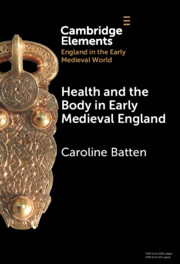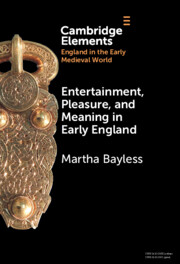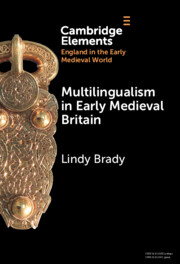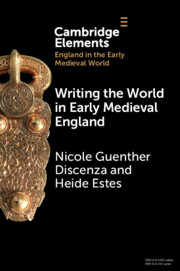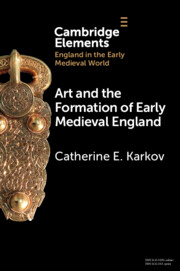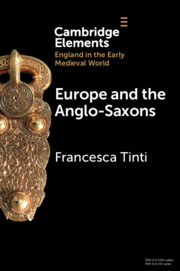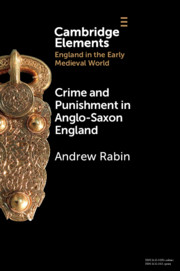About the Series
Elements in England in the Early Medieval World takes an innovative, interdisciplinary view of the culture, history, literature, archaeology and legacy of England between the fifth and eleventh centuries. Individual contributions question and situate key themes, and thereby bring new perspectives to the heritage of early medieval England. They draw on texts in Latin and Old English as well as material culture to paint a vivid picture of the period. Relevant not only to students and scholars working in medieval studies, these volumes explore the rich intellectual, methodological and comparative value that the dynamic researchers interested in England between the fifth and eleventh centuries have to offer in a modern, global context. The series is driven by a commitment to inclusive and critical scholarship, and to the view that early medieval studies have a part to play in many fields of academic research, as well as constituting a vibrant and self-contained area of research in its own right.
Series Editors: Megan Cavell University of Birmingham, Rory Naismith University of Cambridge, Winfried Rudolf University of Göttingen, and Emily Thornbury Yale University.
About the Editors
Megan Cavell is Associate Professor in medieval English literature at the University of Birmingham. She works on a wide range of topics in medieval literary studies, from Old and early Middle English and Latin languages and literature to riddling, gender and animal studies. Her previous publications include Weaving Words and Binding Bodies: The Poetics of Human Experience in Old English Literature (2016), Riddles at Work in the Early Medieval Tradition: Words, Ideas, Interactions (co-edited with Jennifer Neville, 2020), and The Medieval Bestiary in England: Texts and Translations of the Old and Middle English Physiologus (2022)
Rory Naismith is Professor of Early Medieval English History in the Department of Anglo-Saxon, Norse and Celtic at the University of Cambridge, and a Fellow of Corpus Christi College, Cambridge. Also a Fellow of the Royal Historical Society, he is the author of Early Medieval Britain 500–1000 (Cambridge University Press, 2021), Citadel of the Saxons: The Rise of Early London (2018), Medieval European Coinage, with a Catalogue of the Coins in the Fitzwilliam Museum, Cambridge, 8: Britain and Ireland c. 400–1066 (Cambridge University Press, 2017) and Money and Power in Anglo-Saxon England: The Southern English Kingdoms 757–865 (Cambridge University Press, 2012, which won the 2013 International Society of Anglo-Saxonists First Book Prize).
Winfried Rudolf is Chair of Medieval English Language and Literature in the University of Göttingen (Germany). Recent publications include Childhood and Adolescence in Anglo-Saxon Literary Culture (with Susan E. Irvine, 2018). He has published widely on homiletic literature in early England and is currently principal investigator of the ERC-Project ECHOE–Electronic Corpus of Anonymous Homilies in Old English.
Emily V. Thornbury is Associate Professor of English at Yale University. She studies the literature and art of early England, with a particular emphasis on English and Latin poetry. Her publications include Becoming a Poet in Anglo-Saxon England (Cambridge, 2014), and, co-edited with Rebecca Stephenson, Latinity and Identity in Anglo-Saxon Literature (2016). She is currently working on a monograph called The Virtue of Ornament, about pre-Conquest theories of aesthetic value.
Elements in this series
-
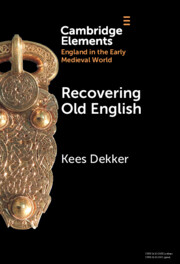
- Element
Recovering Old English



